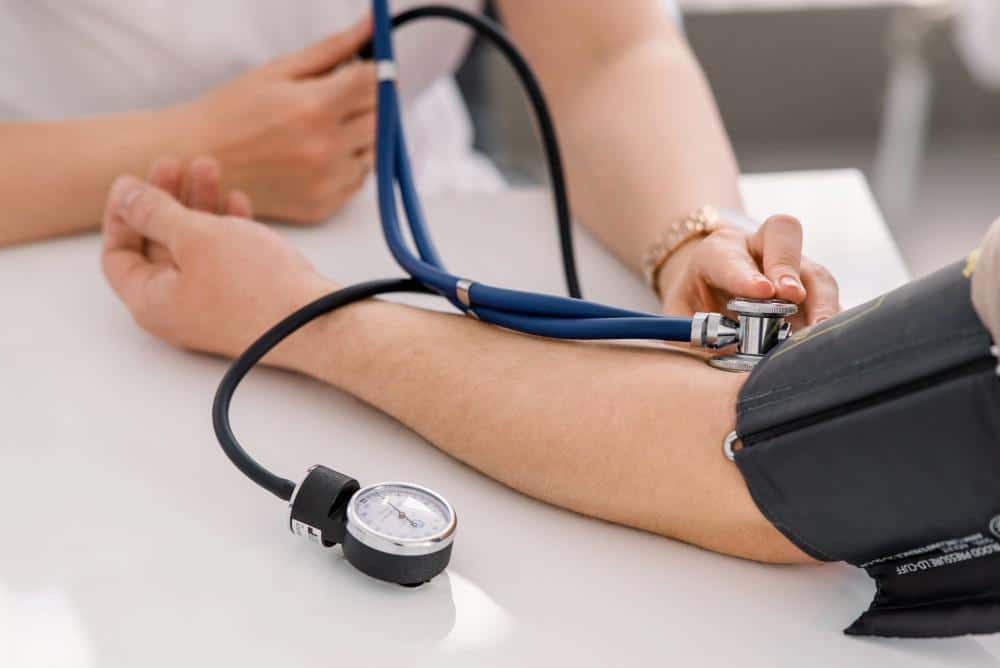It may be hard to believe, but almost half of all American adults have chronic high blood pressure. This condition, called hypertension, can lead to serious complications, including death, if left untreated.
Doctors often refer to chronic high blood as a “silent killer,” because it doesn’t usually have any obvious symptoms until it triggers an event that causes serious damage. This is one of the reasons an annual physical exam with a blood pressure check is so important.
At Prima Medicine in Fairfax and South Riding, Virginia, our providers specialize in offering on-site blood pressure checks and personalized treatment plans to help patients manage their blood pressure and improve their long-term health.
Top factors that can contribute to high blood pressure
Because high blood pressure can be caused by many factors, it can be difficult to pinpoint the trigger. Here’s a look at some of the most common risk factors that can contribute to hypertension.
Weight
Almost three-quarters of Americans are overweight or obese, and if this includes you, your risk of developing high blood pressure increases significantly, no matter how old you are. In fact, research indicates being overweight or obese increases your chances of developing hypertension by at least 40%.
Activity level
If you aren’t leading an active lifestyle, your risk for developing high blood pressure increases. In fact, the more sedentary you are, the more likely you’ll be to develop hypertension. This is because not exercising your heart, the largest muscle in your body, can cause it to weaken. And the weaker your heart is, the more difficulty it can have pumping blood through your body.
Age
You can’t control your age, and, unfortunately, the risk of developing hypertension increases as you get older. In fact, 77% of men and 75% of women over age 65 have this health condition. For men, the risk increases beginning at age 45, and for women the risk increases beginning at age 55.
Sodium intake
The standard American diet is high in processed foods and animal products. Sadly, this means we eat more than two times the recommended daily allowance of sodium. This is bad news for our blood pressure, because high-sodium diets are highly correlated to hypertension.
Potassium intake
While sodium increases blood pressure, potassium helps keep it low naturally. This is because it keeps your muscles, including your heart, and the walls of your blood vessels relaxed and functioning at healthy levels.
Yet consuming a standard American diet, which is high in processed foods and animal products and low in fruits, vegetables, legumes, and beans, means most Americans get less than half of the potassium needed to maintain a healthy heart and optimal blood pressure.
Stress levels
Most of us experience stress every day, causing the release of hormones that put the body into “flight or fight” mode. These same hormones cause blood pressure to rise, so if stress becomes chronic, you can develop hypertension.
Ethnicity
Like age, you can’t control your race, and some ethnicities are linked to higher incidences of hypertension. For example, non-Hispanic black adults are more likely than people from any other racial background to develop high blood pressure. And black women over age 65 have the highest risk.
Family history
You have an elevated risk of developing high blood pressure if you have a family history of hypertension. Researchers are currently looking into whether this is due to the link between hypertension and genes or learned behaviors, such as poor diet or lack of exercise. Be sure to tell your provider at Prima Medicine if you have a family history of hypertension.
Managing high blood pressure
If you have high blood pressure, taking steps to get your hypertension under control is essential, since unmanaged high blood pressure can contribute to serious medical conditions, such as stroke and heart disease.
You can have your blood pressure evaluated at your annual physical or by scheduling an on-site blood pressure check at Prima Medicine. Your provider will track any changes over time, and if you’re diagnosed with hypertension, our team can recommend a personalized treatment plan, which may include:
- Lifestyle changes, such as quitting smoking and getting regular exercise
- Making changes to your diet, such as reducing salt and sodium intake
- Losing excess weight
- Learning healthy stress-management techniques
In some cases, your provider may prescribe medications to help manage your blood pressure and get your numbers under control.
To get your blood pressure checked and to get the care you need if you have high blood pressure, book an appointment online or over the phone with Prima Medicine today.






